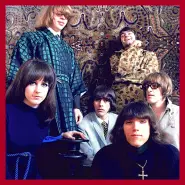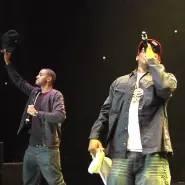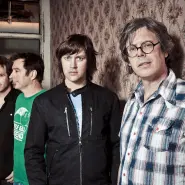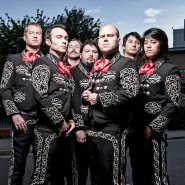
Why does he sing "Learn how to pretend" only once? Does he mean by "We're all alone" that all of us are alone and can't relate, or that we, a couple, are alone and free to react together?
Why does he sing "Learn how to pretend" only once? Does he mean by "We're all alone" that all of us are alone and can't relate, or that we, a couple, are alone and free to react together?

Great song w dual meanings. I think the winter she is referring to is her future life without the one she still loves. She thought she was over him until the chance meeting. She wished now that she endured the party life because it means she’s alone. Fixing the heater is real and it also means SHE is getting old.
Great song w dual meanings. I think the winter she is referring to is her future life without the one she still loves. She thought she was over him until the chance meeting. She wished now that she endured the party life because it means she’s alone. Fixing the heater is real and it also means SHE is getting old.

I think that the song is talking about how oppressive and restrictive society once had been in this case the 1950's and how the counterculture movement issued a new way of thinking and embracing change.
I think that the song is talking about how oppressive and restrictive society once had been in this case the 1950's and how the counterculture movement issued a new way of thinking and embracing change.

The late Artist Juice WRLD, Claps back at a hater on twitter during fall of 2017, after a hater clowned him on twitter "Lil Uzi Dirt" Reposting a tweet from juice wrld with several Emo selfies. After some back and fourth with the hater juice wrld stated " You look like a fan or smthn, if you wanted a Autograph you just had to ask" and a couple weeks later he released the track "Autograph (On My Line)" Where he directly claps back "Why you mad, why you mad, you looking like a joke, dry homour at the most....
The late Artist Juice WRLD, Claps back at a hater on twitter during fall of 2017, after a hater clowned him on twitter "Lil Uzi Dirt" Reposting a tweet from juice wrld with several Emo selfies. After some back and fourth with the hater juice wrld stated " You look like a fan or smthn, if you wanted a Autograph you just had to ask" and a couple weeks later he released the track "Autograph (On My Line)" Where he directly claps back "Why you mad, why you mad, you looking like a joke, dry homour at the most. You choking on your shirt like a D*** in throat" and then throughout the rest of the song he encourages others to suffocate a hater by "Follow your dreams and when you reach them celebrate, that's the only way to truly make a hater suffocate" giving positivity to people who have dreams but face adversity. The track nowadays is often one of many juice wrld hardcore fans favorite released track. Including myself.

The late Artist Juice WRLD, Expresses his love for his girlfriend, in a detailed but heartfelt way. He even express that he hates having private moments with her when he's off substances. "My heart is racing Everytime you ride, wait until the drugs fade, girl you give me the best feeling even when Im a mess" deeply expressing his love and that he would be sober for her feeling. This track also had a very immersive and creative music video, of a scenario of juice wrld being in a video game, most likely Twisted Metal, saving his girlfriend after she...
The late Artist Juice WRLD, Expresses his love for his girlfriend, in a detailed but heartfelt way. He even express that he hates having private moments with her when he's off substances. "My heart is racing Everytime you ride, wait until the drugs fade, girl you give me the best feeling even when Im a mess" deeply expressing his love and that he would be sober for her feeling. This track also had a very immersive and creative music video, of a scenario of juice wrld being in a video game, most likely Twisted Metal, saving his girlfriend after she is in a back of a van being driven away with chaotic machine gun firing and explosions. This music video was most likely inspired off the Name of the album and cover art, being a Twisted metal inspired cover art as well.

The late Artist Juice WRLD, Expresses his love for his girlfriend, in a detailed but heartfelt way. He even express that he hates having private moments with her when he's off substances. "My heart is racing Everytime you ride, wait until the drugs fade, girl you give me the best feeling even when Im a mess" deeply expressing his love and that he would be sober for her feeling. This track also had a very immersive and creative music video, of a scenario of juice wrld being in a video game, most likely Twisted Metal, saving his girlfriend after she...
The late Artist Juice WRLD, Expresses his love for his girlfriend, in a detailed but heartfelt way. He even express that he hates having private moments with her when he's off substances. "My heart is racing Everytime you ride, wait until the drugs fade, girl you give me the best feeling even when Im a mess" deeply expressing his love and that he would be sober for her feeling. This track also had a very immersive and creative music video, of a scenario of juice wrld being in a video game, most likely Twisted Metal, saving his girlfriend after she is in a back of a van being driven away with chaotic machine gun firing and explosions. This music video was most likely inspired off the Name of the album and cover art, being a Twisted metal inspired cover art as well.

I think that this is about breaking free from the 1950's societal norms and embracing the counterculture mentality.
I think that this is about breaking free from the 1950's societal norms and embracing the counterculture mentality.

Another psychedelic rock song about shrooms or tripping on lsd.
Another psychedelic rock song about shrooms or tripping on lsd.

This song is about a drug addicted prostitute named "teresa with a baby by her side that the singer "Joan" would see frequently outside of her new york apartment and she's wondering what it would be like to buy drugs off of her.
This song is about a drug addicted prostitute named "teresa with a baby by her side that the singer "Joan" would see frequently outside of her new york apartment and she's wondering what it would be like to buy drugs off of her.


















The late Artist Juice WRLD, Expresses his inner battles with addictions, while still knowing he's righteous. "All white Gucci suit, I'm feeling righteous, I know the truth is hard to digest" shows that he tries to be humble and stay a good soul even when addiction is caving in. He mentions doing substances throughout the song while expressing his struggles. Many people often rightfully so proclaim this is one of his most beautiful songs. The music video for this track is highly creative with the first half showing his lifestyle, and then in a creative cut juice wrld jumps into...
The late Artist Juice WRLD, Expresses his inner battles with addictions, while still knowing he's righteous. "All white Gucci suit, I'm feeling righteous, I know the truth is hard to digest" shows that he tries to be humble and stay a good soul even when addiction is caving in. He mentions doing substances throughout the song while expressing his struggles. Many people often rightfully so proclaim this is one of his most beautiful songs. The music video for this track is highly creative with the first half showing his lifestyle, and then in a creative cut juice wrld jumps into the crowd but transitions to a anime style animation of him jumping through into the clouds and starts fighting his demons. This song even helped me through heartbreaking news within my family. That listen really was one of the best listens to this track. This track was released on the first posthomous album released in 2020 Titled "Legends Never Die" appropriately titled for the legacy and music juice wrld left us with.